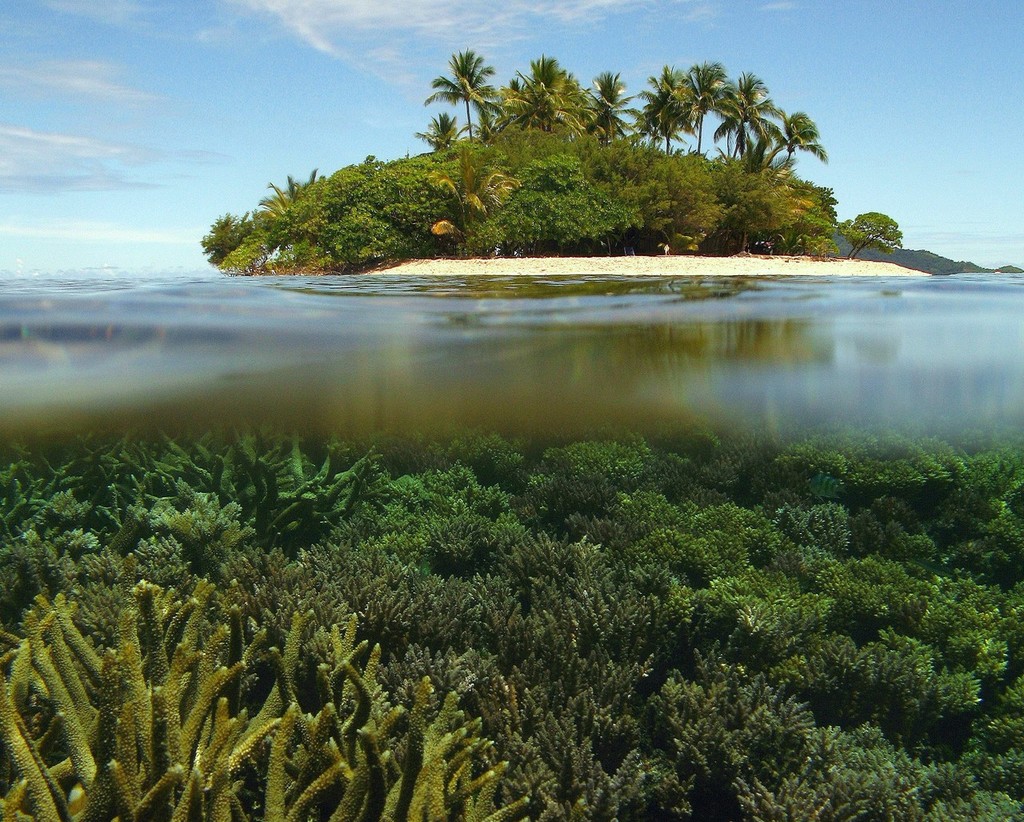Dealing with the ‘evil twin’ of climate change- ocean acidification
by Jeni Bone on 5 Apr 2011

Photo: Jeff Maynard
ARC Centre of Excellence Coral Reef Studies
http://www.coralcoe.org.au/
Ocean acidification (where the water becomes more acidic) is often called 'the evil twin of climate change' and is considered by many to be as great a problem as increasing temperatures. Global experts have gathered in Cairns, Queensland - just a short boatride from the Great Barrier Reef - to bring the world's attention to the science of Climate Change at 'Greenhouse 2011', 4-8 April.
The oceans not only support the nutrition and livelihoods of millions of people but also play an incredibly important role in locking down carbon, and scientists are concerned about the impact that acidification may have on both marine life and future climate change.
Among the experts gathered in Cairns are Dr Tony Press, Chief Executive Officer at the Antarctic Climate and Ecosystems Cooperative Research Centre (ACE CRC), Prof Ove Hoegh-Guldberg, Professor of Marine Studies and Executive Director of the Global Change Institute, at the University of Queensland, Dr Paul Marshall, Director of Climate Change Group, Great Barrier Reef Marine Park Authority (GBRMPA) and Dr Donna Roberts, Antarctic Climate and Ecosystems Cooperative Research Centre.
The world’s leading marine and climate change scientists warn us that our current rates of carbon emissions are making our oceans more acidic. This is happening so fast that it poses a serious threat to biodiversity and marine life.
Left unchecked, they assert, ocean acidification could destroy all our coral reefs by as early as 2050. It also has the potential to disrupt other ocean ecosystems, fisheries, habitats, and even entire oceanic food chains.
One third of all carbon dioxide emitted by humanity has been absorbed by the world’s oceans. This is making them more acidic than they have been for tens of millions of years.
The biodiversity and splendour of coral reefs are at risk of disappearing for thousands of years. This places in jeopardy an estimated 500 million people who depend on coral reefs for their daily food and income. In Australia, the Great Barrier Reef generates over 6.5 billion dollars in tourism revenue and 63,000 jobs.
If atmospheric CO2 can be stabilised at 450 ppm, (one possible target that has been discussed by politicians) only 8% of existing tropical and subtropical coral reefs will still be in waters of the right pH level to support their growth.
Ocean plankton provide 50% of the oxygen that we breathe.
Due to Global Warming, that capacity to provide oxygen and support the fundamental food chains of the ocean has decreased by 6% over the last three decades.
Coral Reefs are being lost more than twice as fast as the rainforests. Current estimates reveal that we will lose the other 50% over the next 40 years.
Left unchecked, our greatest scientific minds say ocean acidification could trigger a Great Mass Extinction Event. Growing evidence suggests that four of the five Great Mass Extinctions have been associated with rapidly acidifying oceans, due to spikes in the concentration of atmospheric CO2.
More at www.aussmc.org
If you want to link to this article then please use this URL: www.sail-world.com/82068